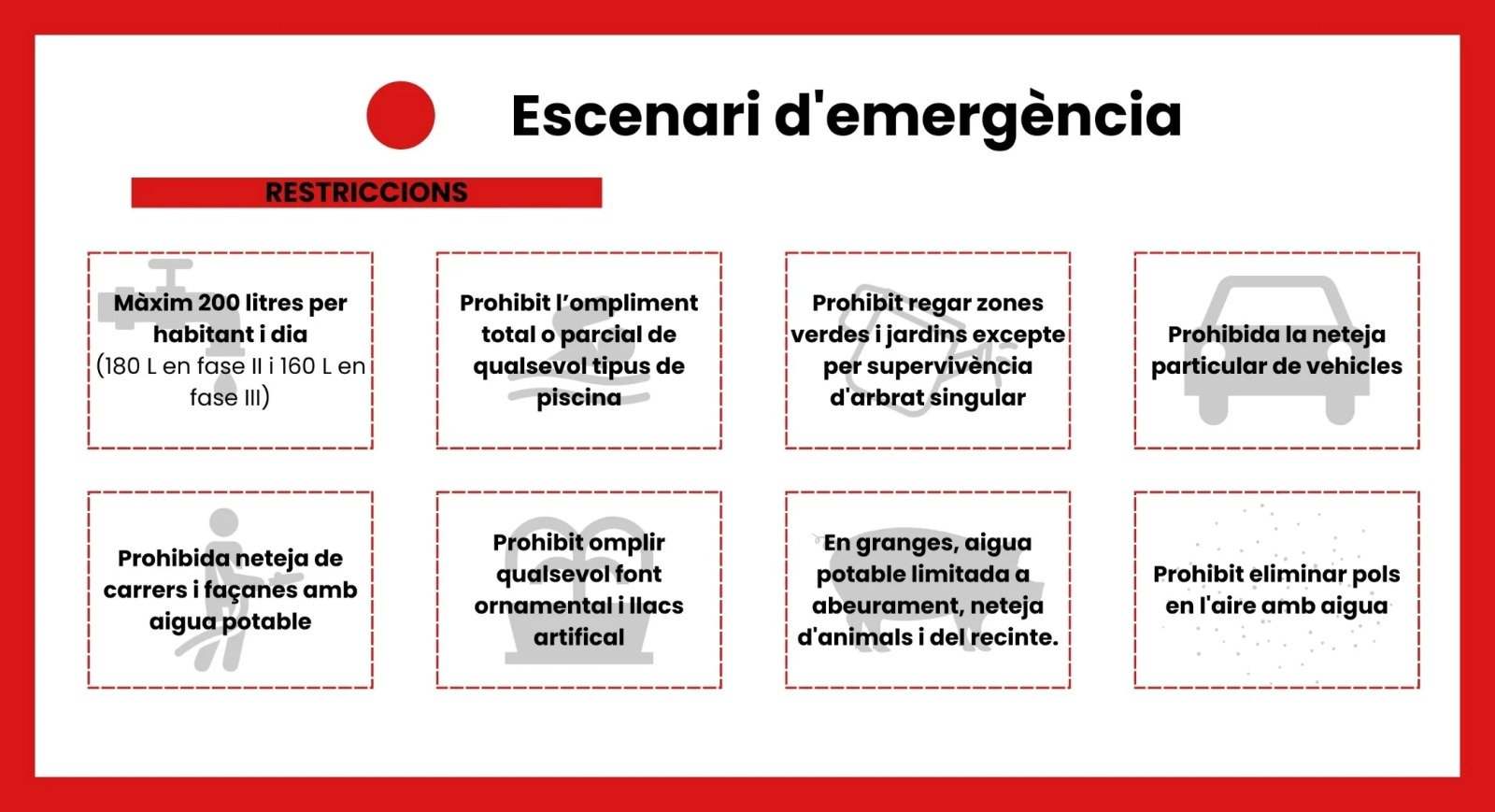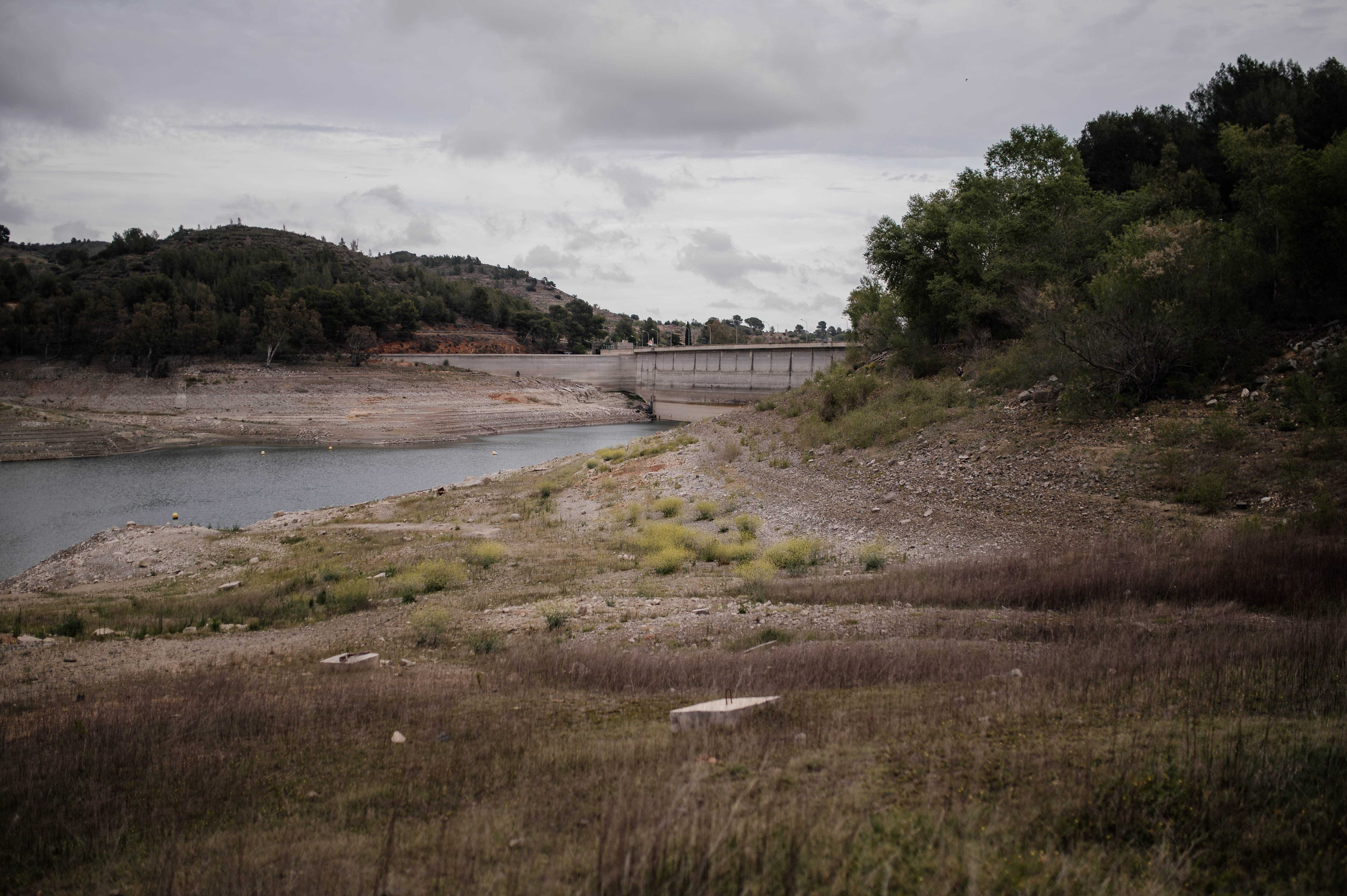The Catalan Water Agency (ACA) has declared a state of emergency due to drought in two separate areas of Catalonia: the Fluvià-Muga aquifer in the north-east and the Riudecanyes reservoir in the south. This declaration affects a total of 24 municipalities, mostly located in the Alt Empordà county close to the French border (22 towns), with the remaining two affected municipalities located in the Baix Camp county, in Tarragona province. Samuel Reyes, director of the ACA, has appeared in a press conference to announce the change of status for these areas from 'exceptionality' (level 4) to 'emergency' (the fifth and highest level). "After thirty months of drought, just because there are two months with rain, the risk of drought has not disappeared," explained Reyes. "As we always say: it's a marathon, a long-distance race." It is expected that the new drought measures for the 24 towns will enter into force next week, when the resolution is published in the official Catalan government gazette.
The state of emergency affects a total of 26,000 people who live in the affected municipalities. By far the most affected territory is the Alt Empordà, in Catalonia's coastal north-east, where 22 municipalities are affected by the measure, specifically, the towns of Agullana, l'Armentera, Capmany, Espolla, Garriguella, Jonquera, Masarac, Mollet de Peralada, Palau-savardera, Pau , Pedret i Marzà, Peralada, Sant Climent Sescebes, Sant Miquel de Fluvià, Sant Mori, Sant Pere Pescador, Torroella de Fluvià, Ventalló, Vilabertran, Viladamat, Vilajuïga and Vilamacolum. "The Fluvià-Muga aquifer goes from being in a situation of exceptionality to an emergency situation. This is happening because it is at historic lows not seen since 2009", underlined Reyes.
At the other end of Catalonia, in the Baix Camp county, the two municipalities affected are Riudecanyes and Duesaigües, located about 10km west of Reus. With the entry into emergency status of the 24 towns, an overall allocation of 200 litres per inhabitant per day will be applied in all the affected municipalities.
Measures to be implemented
In addition to the limitation of 200 litres per inhabitant per day, there are other measures that must be followed in these territories. For example, it is forbidden to completely or partially fill any kind of swimming pool, as well as to water green areas and gardens, with the exception of ensuring the survival of unique trees.
The cleaning of private vehicles is also prohibited. Another restriction is on cleaning of streets and facades, which can only be carried out with water that is not drinkable. It is forbidden to fill artificial fountains and lakes. The use of drinkable water on farms is restricted: it is only allowed for animals to drink, and for the cleaning of food and spaces. Finally, it is forbidden to remove dust from the air with water.

Image: Laura Cercós
Concern for Siurana
On the other hand, the ACA has recommended that the municipalities that depend on the Siurana reservoir, a few kilometres north of the Riudecanyes reservoir in the Priorat county, also adopt the measures that apply to emergency status, since they are in a "similar" situation to those that are supplied from the Riudecanyes dam.

